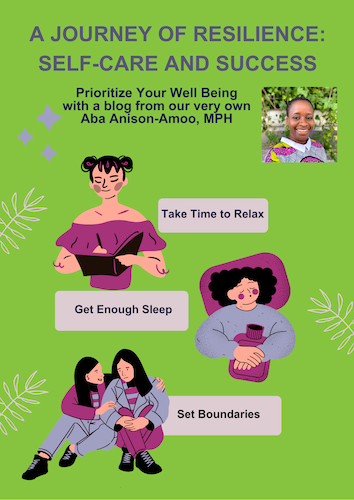Outreach Connection Blog
Information and Resources for Outreach Programs
About
HOP’s Blog is dedicated to bringing you the most up-to-date information about outreach resources and emerging trends. Here you can find regular addresses from the Executive Director, as well as rotating staff blogs. It also elevates the experience of outreach workers and the importance of outreach through the sharing of outreach stories.
Outreach Connection Newsletter
Sign-up for the Outreach Connection monthly newsletter and blog digest
SUBSCRIBE HEREFacebook Feed
A New Year Rooted in Partnership and Community From Executive Director, Cynthia Selmi
A Journey of Resilience: Self Care and Success
Modern-Day Self-Care: How Effective is It?
Gestational Diabetes: The Role of Community Health Workers in Prevention and Management
 (more…)
(more…) The Public Health Emergency Is Ending & Millions Will Lose Their Coverage
 On January 30, 2023, the Biden Administration announced the end of the COVID-19 public health emergency (PHE) effective May 11th. Though this may seem like the final step towards a post-pandemic world, it is dreadful news for 7 to 15 million people in the U.S. who could lose their health insurance as early as now.
The public health emergency declaration created many benefits especially for those who had no or limited health coverage.
The most important advantage is the federal law called the continuous enrollment requirement that mandated states to stop all Medicaid, Medicare, and Children’s Health Insurance Program (CHIP) eligibility redeterminations. This protected millions from losing their much-needed health coverage during the pandemic. The continuous enrollment requirement expired on March 31, 2023, which will restart Medicaid redeterminations and eligibility checks.Up to 15 million people in the U.S. will lose their health coverage because of this. To make matters worse, almost 6 million people who are actually still eligible for coverage will be dropped due to administrative issues, namely the churning process. (more…)
On January 30, 2023, the Biden Administration announced the end of the COVID-19 public health emergency (PHE) effective May 11th. Though this may seem like the final step towards a post-pandemic world, it is dreadful news for 7 to 15 million people in the U.S. who could lose their health insurance as early as now.
The public health emergency declaration created many benefits especially for those who had no or limited health coverage.
The most important advantage is the federal law called the continuous enrollment requirement that mandated states to stop all Medicaid, Medicare, and Children’s Health Insurance Program (CHIP) eligibility redeterminations. This protected millions from losing their much-needed health coverage during the pandemic. The continuous enrollment requirement expired on March 31, 2023, which will restart Medicaid redeterminations and eligibility checks.Up to 15 million people in the U.S. will lose their health coverage because of this. To make matters worse, almost 6 million people who are actually still eligible for coverage will be dropped due to administrative issues, namely the churning process. (more…) The Importance of Children’s Physical Activity for Combating Diabetes
Protecting Your Emotional Health During the Holidays

Image by Freepik.com
Halloween just ended and the thoughts of the holidays sends a rush of adrenaline down my spine. The past two years have been a blur to me as I navigate through how I spent the holidays with fewer family and friends. How is this one going to be? The stress of putting things in order, sending invites and greeting cards across countries, and also the many gifts and meals to deal with. There’s one thing I keep reminding myself of: to prioritize my inner self, my emotional well-being before others. (more…)College During COVID
 Many people romanticize the idea of having a college experience. The people you meet, the unbreakable bonds you create and the memories that will last a lifetime. But nobody talks about the pressure to choose a career, the realities of living with roommates, the unforeseen changes that occur... and in some cases a pandemic that will completely alter this romanticized version of reality. My college experience has not been the perfect picture that everyone paints and hopes for but it has taught me so much more than I ever could have imagined. I have been so lucky to create my own life in San Diego, establish a close-knit group of friends, become exposed to different-minded people, and acquire more knowledge in my field of study. (more…)
Many people romanticize the idea of having a college experience. The people you meet, the unbreakable bonds you create and the memories that will last a lifetime. But nobody talks about the pressure to choose a career, the realities of living with roommates, the unforeseen changes that occur... and in some cases a pandemic that will completely alter this romanticized version of reality. My college experience has not been the perfect picture that everyone paints and hopes for but it has taught me so much more than I ever could have imagined. I have been so lucky to create my own life in San Diego, establish a close-knit group of friends, become exposed to different-minded people, and acquire more knowledge in my field of study. (more…) Baylor College of Medicine Research Demonstrates Success of HOP’s Outreach Business Value Toolkit!
How Increased Use of Technology During COVID-19 has Influenced Diabetes Outcomes in Children
 The COVID-19 pandemic created a global shift affecting families worldwide and has caused immense consequences to children both mentally and physically. At its onset, much of the world was placed on a lockdown, which limited human interaction and replaced it with virtual forms of communication reliant on technology. An increased reliance on social platforms and the internet at-large have altered child development to the extent that their mental and physical health is at stake. (more…)
The COVID-19 pandemic created a global shift affecting families worldwide and has caused immense consequences to children both mentally and physically. At its onset, much of the world was placed on a lockdown, which limited human interaction and replaced it with virtual forms of communication reliant on technology. An increased reliance on social platforms and the internet at-large have altered child development to the extent that their mental and physical health is at stake. (more…) Diabetes and Stress: Reimagining Health Education Intervention Strategies
“Self-Care is Burning Me Out.”
 It’s hard to believe 2021 is almost over as we transition from summer to fall and the Covid-19 pandemic continues to leave us feeling isolated, insecure, and exhausted. Many of my friends, co-workers, and family have expressed frustration at the lack of boundaries between a work- personal life balance, which was extremely frayed before the pandemic. (The last two HOP staff blogs discussed burn-out, self-care and healing. We have a theme going!) Now that we have been working at home for the last 18 months, this boundary seems to have disappeared altogether. Over 50% of the US workforce reports feeling burned out – 2021 is being hailed as the Great Resignation. Burnout didn’t come about solely because of the pandemic. The American workforce, especially health care workers, were suffering from this long before March 2020. (more…)
It’s hard to believe 2021 is almost over as we transition from summer to fall and the Covid-19 pandemic continues to leave us feeling isolated, insecure, and exhausted. Many of my friends, co-workers, and family have expressed frustration at the lack of boundaries between a work- personal life balance, which was extremely frayed before the pandemic. (The last two HOP staff blogs discussed burn-out, self-care and healing. We have a theme going!) Now that we have been working at home for the last 18 months, this boundary seems to have disappeared altogether. Over 50% of the US workforce reports feeling burned out – 2021 is being hailed as the Great Resignation. Burnout didn’t come about solely because of the pandemic. The American workforce, especially health care workers, were suffering from this long before March 2020. (more…) Diabetes Across the Lifespan: Diabetes Prevention Strategies for the Whole Family
Workplace Burnout: The Impact of Forgetting Oneself
“Whatever you’re feeling, be good to yourself. If you feel lost, be patient with yourself while you find your way. If you feel scared, be gentle with yourself while you find the strength to face your fear. If you feel hurt, be kind to yourself while you grieve and slowly heal. You can’t bully yourself into clarity, courage, or peace, and you can’t rush self-discovery or transformation. Some things simply take time, so take the pressure off and give yourself space to grow.”
- Lori Deschene
The year 2020 was a transformative year for the majority of the world. As society shutdown and quarantining was implemented, many of us needed to adjust to a new reality for the unforeseeable future. Economic hardships, a mysterious virus, stress, and loneliness wreaked havoc on many individuals. Essential workers, the heroes that kept our society running, were faced with potentially stressful work environments due to the highly contagious Covid-19 virus along with a demanding workload. While the occurrence of workplace burnout throughout the Covid-19 pandemic is well documented, I had a very different experience. For the first time in a long time, despite everything around me, I felt peace. The pandemic granted me the opportunity to connect with someone that I neglected for years, myself. (more…)



 Image attribution: USAG-Humphreys on
Image attribution: USAG-Humphreys on 